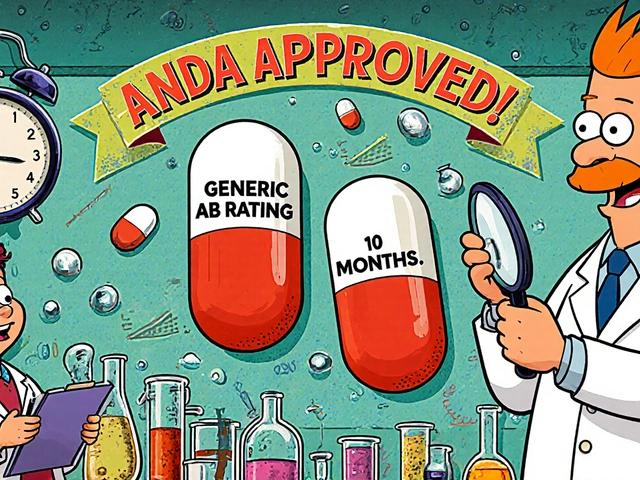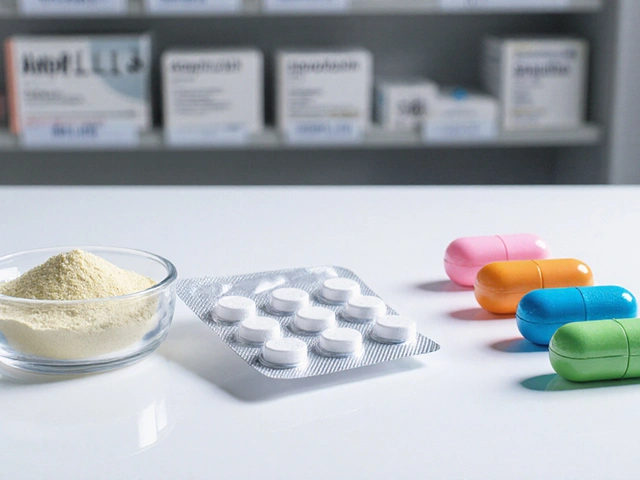Understanding Menopause and Its Symptoms
Before diving into the relationship between Levothyroxine and menopause, it's crucial to understand what menopause is and what it entails. Menopause is a natural phase in a woman's life, marking the end of her fertility period. It's characterized by the cessation of menstrual periods for 12 consecutive months. This usually happens in a woman's late 40s or early 50s, but it can occur earlier or later.
Some of the common symptoms of menopause include hot flashes, night sweats, mood swings, and difficulty sleeping. Some women may experience a decrease in libido or sexual desire, while others may have problems with memory and concentration. These symptoms can be mild for some women, but for others, they can significantly impact their quality of life.
Linking Thyroid Issues and Menopause
Many women may not realize that there is a significant link between thyroid issues and menopause. The thyroid gland, located at the front of the neck, produces hormones that regulate the body's metabolism. When the thyroid doesn't produce enough of these hormones, it can lead to hypothyroidism, a condition that can cause symptoms similar to those of menopause.
As women age, their risk of developing hypothyroidism increases. This is because the immune system can become less efficient with age, leading to an increased risk of autoimmune diseases like Hashimoto's disease, which can cause hypothyroidism. This makes it difficult to distinguish between menopause and hypothyroidism, as the symptoms are very similar.
How Levothyroxine Can Help
So, where does Levothyroxine fit into all of this? Levothyroxine is a medication that is commonly prescribed to treat hypothyroidism. It's a synthetic form of the thyroid hormone thyroxine (T4), which your body naturally produces. When the thyroid gland isn't producing enough thyroxine, Levothyroxine can be used to help restore normal thyroid function.
By doing so, Levothyroxine can help alleviate the symptoms of hypothyroidism, which often mimic those of menopause. This can include fatigue, weight gain, depression, and more. It's important to note that while Levothyroxine can help manage these symptoms, it's not a cure for hypothyroidism or a treatment for menopause itself.
Managing Menopause Symptoms with Levothyroxine
While Levothyroxine is not a direct treatment for menopause, it can help manage the symptoms that are common to both menopause and hypothyroidism. By restoring the balance of thyroid hormones in the body, Levothyroxine can help reduce fatigue, improve mood, promote weight loss, and boost energy levels.
Moreover, it's essential for women going through menopause to have their thyroid function checked regularly. If you're experiencing severe menopause symptoms, it's worth discussing with your doctor whether hypothyroidism might be part of the problem. A simple blood test can determine if you have hypothyroidism, and if so, Levothyroxine may be an effective part of your treatment plan.
The Importance of Regular Monitoring and Dose Adjustment
Taking Levothyroxine for hypothyroidism requires regular monitoring and potentially adjusting the dose. This is because the amount of thyroid hormone you need may change over time, especially during menopause. Your healthcare provider will likely want to check your thyroid hormone levels regularly to ensure your dosage is still appropriate.
Also, remember that while Levothyroxine can help manage symptoms, it's not a one-size-fits-all solution. Every woman's experience with menopause is unique, and what works for one woman may not work for another. It's crucial to have open and ongoing conversations with your healthcare provider about your symptoms and treatment options to ensure you're getting the best care possible.



